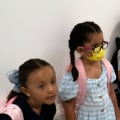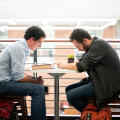Critical thinking is an essential skill for young Christians. It helps them to distinguish between truth and falsehood, and to make informed decisions. Duck-Joo Kwak, in his article “Reconceptualization of Critical Thinking for Moral Education in Culturally Plural Societies”, explains that critical thinking involves more than just comparing what they are told or read with the Scriptures. In his book Educating Reason, author Harvey Siegel responds to a criticism that is sometimes made against critical thinking, called the objection to indoctrination.
He argues that questions and critical thinking have an important place in the Church. President Dieter F. Uchtdorf defines critical thinking as the ability to evaluate information and draw conclusions based on evidence. Teaching in a way that encourages and invites students to think critically about doctrines reflects not only the teaching practices that are encouraged in current religious education in the Church, but also the doctrines of the Church.
Tim John Moore, a university professor and author, states that another important quality of critical thinking is skepticism towards knowledge that questions whether reality can be known with certainty. Rajeswari Mohan suggests that teaching with critical thinking would require “a reunderstanding of the classroom”. This kind of critical thinking requires mental flexibility and the willingness to recognize that a person may not be in possession of all the facts. To foster this kind of critical thinking, Christian schools use methods such as problem-solving activities and encouraging students to think independently.
As students become critical thinkers, they can solve problems on their own, demonstrating the skills needed to succeed in the 21st century. Critical thinking is used in the sense of “critical”, which involves evaluation or judgment, ideally with the objective of providing useful and accurate feedback that serves to improve the thinking process. Armed with these skills, students can solve problems in a way that encourages success in many disciplines. Each person brings different life experiences and knowledge, which they use to develop critical thinking.






